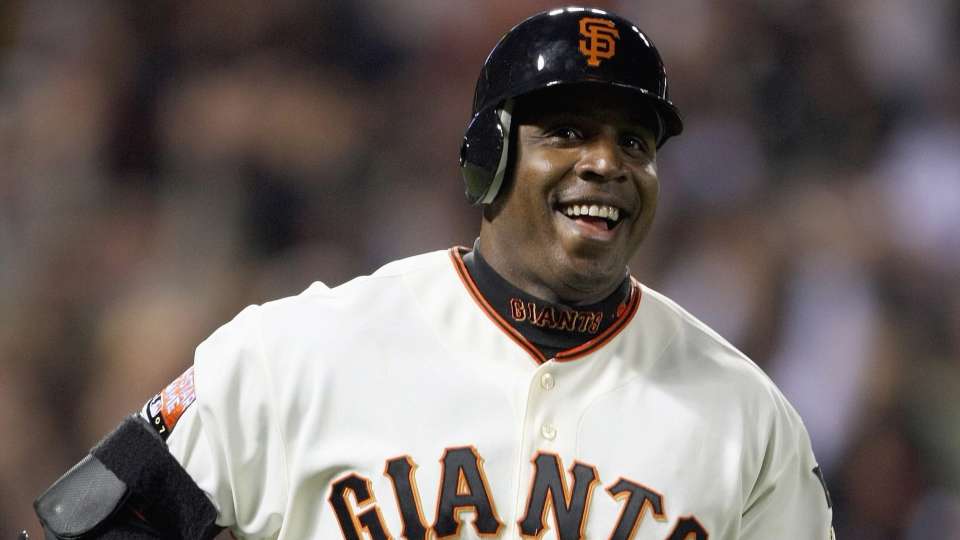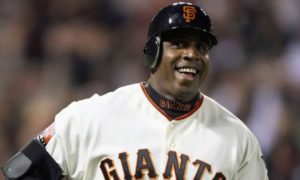Barry Bonds and the Hall of Fame’s Character Clause

As we all know, voting on players for enshrinement in the National Baseball Hall of Fame is subjective. There is no ironclad standard for inclusion in the Hall. Rather, the Baseball Writers Association of America has a set of vague guidelines to which to refer.
On this note, the BBWAA Rules for Election state outright there is no magic number that merits automatic election. Batting .400 in a season wouldn’t earn you a ticket to Cooperstown. Nor would, say, throwing a perfect game or hitting 500 home runs over the course of your career.
In fact, these guidelines seem more focused on excluding candidates deemed unworthy of permanent recognition. Key to this concept is what has been referred to as the rules Voting section’s “character clause.” Alongside a player’s “record, playing ability, and contributions to the teams(s) on which the player played,” voters are to consider his “integrity, sportsmanship, and character.” For a sport which touts its place in American history and culture, this stipulation is not surprising.
The problem arises when weighing a player’s performance against his conduct, specifically when that conduct would appear to disqualify him. In recent years, the viability of numerous MLB heavyweights has come into question under suspicion of performance-enhancing drug use or open admission. PED use, strictly speaking, is cheating. Why should we celebrate someone who knowingly violated the rules?
Of course, not everything herein is black-and-white. Owing to these guidelines’ subjectivity, appraisals of a player’s viability—not to mention re-appraisals of members and standards over time—can vary, even when considering those deemed to have violated the spirit of the game.
Justin Tinsley, sports and culture reporter for ESPN’s The Undefeated, recently penned an article concerning why the moral argument for keeping Barry Bonds out of the Baseball Hall of Fame “doesn’t hold up.” As he reasons, whether it’s that previous honorees were “mediocre talents” or “stone-cold racists,” Bonds is at least as deserving as these other men.
If Bonds, or anyone else, is curious about his Hall of Fame odds, there are places where he can find out.
Certainly, on the statistical front, Barry Bonds is a more-than-worthy addition to Cooperstown. Over his 22-year career, Bonds racked up 762 home runs, still tops in MLB history. He tallied close to 3,000 hits, falling fewer than 100 hits short of the mark. He also finished within five RBI of 2,000 and within mere percentage points of a lifetime .300 batting average. More than 2,000 runs scored. More than 500 steals. Per Baseball-Reference’s calculation of wins above replacement, Bonds is only bested by Babe Ruth, Walter Johnson, and Cy Young. That’s some elite company.
This is all before we get to the various accolades and award Bonds earned over two decades in the big leagues. 14 times an All-Star. A 12-time winner of the Silver Slugger award. Eight Gold Gloves. Seven MVP awards. Two batting titles. If those alone don’t impress you, I’m not sure what does.
It’s not as if Barry Bonds fell off toward the end of his tenure either. From 2001 to 2004 (age 36 to 39), a period during which he earned four of his seven MVP awards, Bonds was probably the most feared hitter in all of baseball. For a little perspective, in 1995, he led Major League Baseball with 120 bases on balls, 22 of them intentional. In 2004, he recorded 120 intentional walks alone and a staggering 232 bases on balls. In fact, Bonds owns the three highest single-season totals for walks in baseball history and six of the top 20. To outdo even Ted Williams in this regard, you know Bonds was a force to be reckoned with.
And yet, there’s that big asterisk on Bonds’s ledger (in the case of his record-setting 756th home run ball, it literally had an asterisk engraved on it as per an online contest). As Tinsley acknowledges, alleged steroid use looms largest. Bonds was the “big fish” caught up in the infamous BALCO scandal. Even if it was later overturned on appeal, meanwhile, his indictment on four counts of perjury and conviction on one count of obstruction of justice probably doesn’t help his cause.
For that matter, neither does opposition from greats of the game like Joe Morgan or former commissioner Bud Selig. In his book For the Good of the Game, released earlier this month, Selig recounts how he was unhappy to be going to different ballparks watching the “self-absorbed” Bonds try to break the all-time home run record. Selig’s meditations on Bonds’s character echo the sentiments of other critics of his public persona. Bonds was, as Selig termed it, “simply not likeable.”
Perhaps this is an overstatement on the former commissioner’s part, but the Pirates and later Giants slugger was a divisive figure. As Tinsley cites, and as Bonds confesses, he was “flat-out dumb” as a younger man. Even if he didn’t consciously create his identity as a villain, as many saw him, he still recognizes he did things to perpetuate that image.
As evidenced by his remaining outside the Hall despite his myriad achievements, Bonds’s purported steroid use and character flaws matter to the baseball writers serving as gatekeepers to his reaching the necessary threshold for enshrinement. The question, however, is how much should they?
On the morality front, Tinsley points to Cap Anson as someone who, like Barry Bonds, has the numbers to be honored but whose comportment as a player and person make him a questionable inclusion, if they don’t disqualify him altogether. Anson was an overt racist who played a role in preserving baseball’s color barrier, refusing to take the field against African Americans. Especially when considering Major League Baseball celebrates Jackie Robinson’s legacy on a yearly basis, Anson’s place in the hall by itself makes barring other players based on morality questionable.
Along these lines, some experts suggest anyone who played before people of color could participate should have an asterisk next to his name because he wasn’t going up against the best competition. Others tell of performance-enhancing substance use long before the days of Mark McGwire and Sammy Sosa. We’re talking methamphetamines and worse. It’s not something discussed a lot in baseball circles, but it’s there.
Speaking of McGwire and Sosa, Tinsley highlights too how their home run race in 1998 helped generate enthusiasm in a sport still reeling from the ill will created by the strike in 1994. Without steroids, it can be argued, baseball could’ve been relegated to undercard status among American sports. The sport still faces challenges marketing its biggest stars if we’re keeping it 100.
It therefore seems a bit disingenuous for Selig and others to distance themselves from the likes of Bonds and McGwire and Sosa when they were an integral part of a memorable era in baseball. Without them, someone like Selig might not be esteemed so highly today, and he, like the players over whom he presided as commissioner, is yet regarded questionably by some in retrospect. After all, Mr. Selig, things weren’t so bad while people were tuning in and showing up to the ballpark, were they?
On a personal note, I might add, a certain amount of respect should be afforded men who can turn 90+ MPH fastballs around with regularity—steroids or no steroids. It’s easy for baseball writers voting on these matters to moralize as armchair philosophers, but how many of us could hope to do what these men did? I’m not saying we should encourage cheating, mind you, but let’s not kid ourselves either.
You may never be convinced Barry Bonds deserves to be elected to the National Baseball Hall of Fame. Heck, I have my doubts despite everything you just read. That said, not including Bonds in the hall feels on some level incomplete, and as some might argue, he should “absolutely, positively, 100% be in the Hall of Fame.” Garnish his records with an asterisk if you’d like, but to remove him from baseball history leaves a hole where a player of his stature arguably should stand. If nothing else, we should concede that a conversation about his legacy and that of other imperfect figures in baseball lore is one worth having.
















